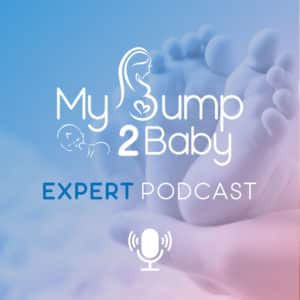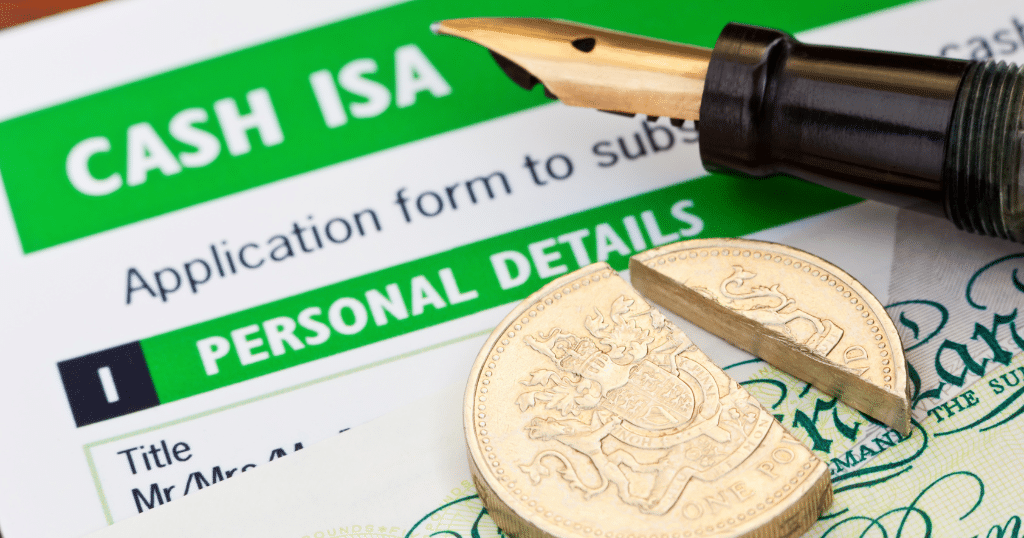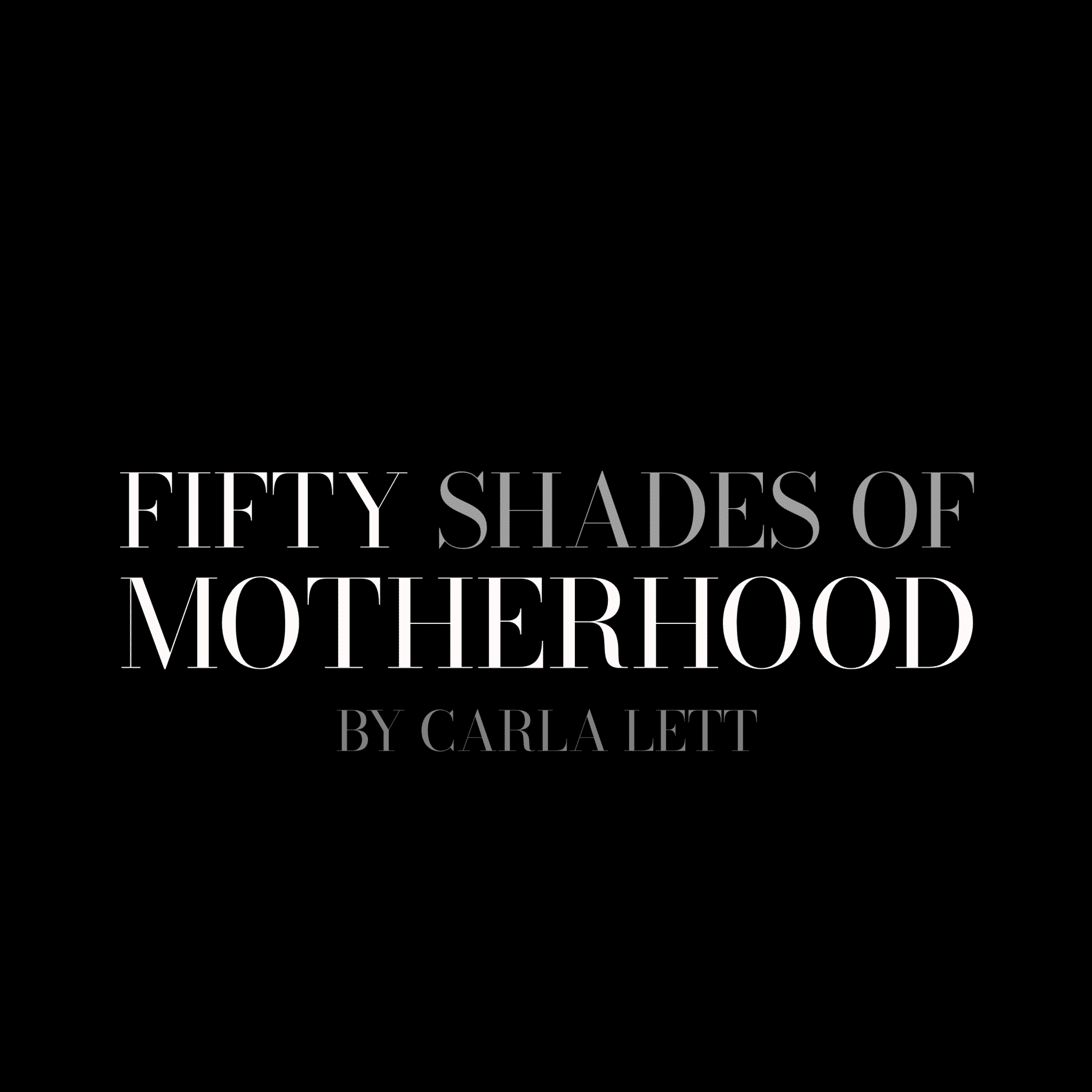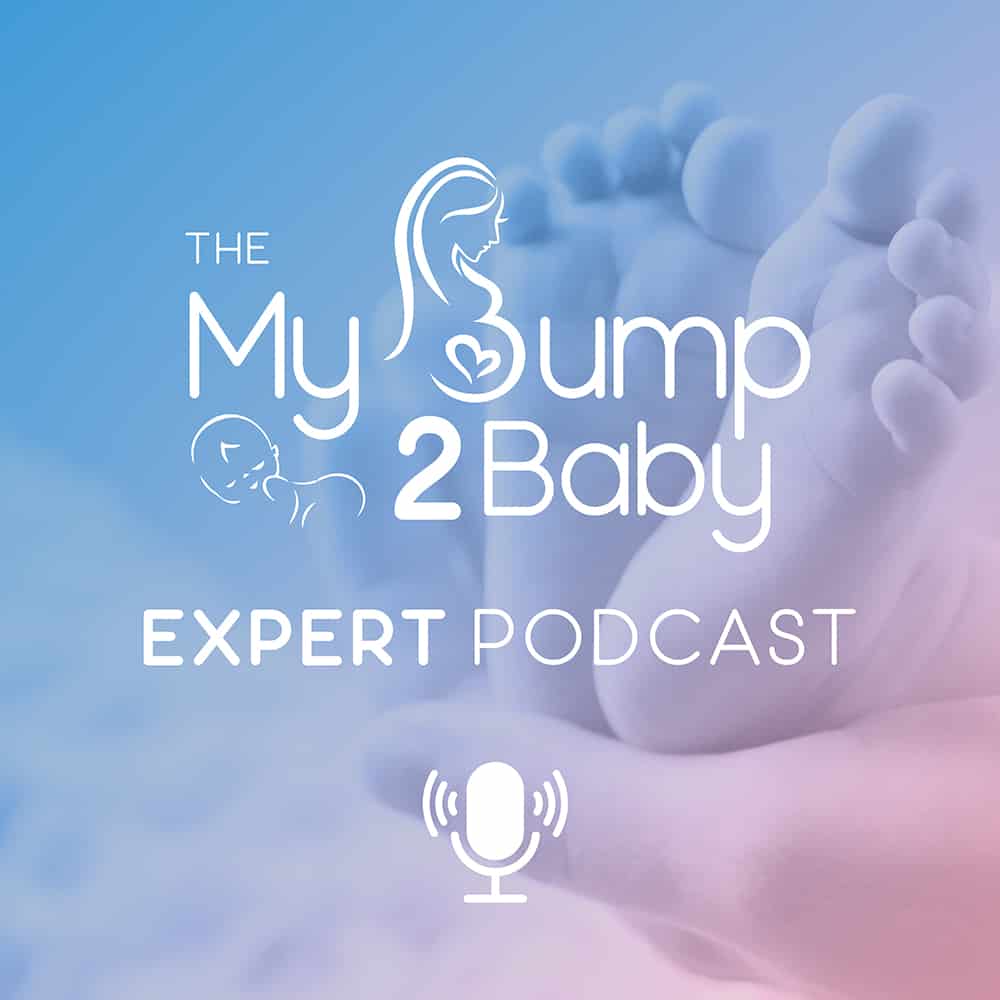- Junior Cash ISA’s
Today on the expert podcast we are joined by Mette Jensen, Senior Financial Advisor at Four Wealth Management in Clifton. In this episode we talk about investing for our children’s future and we talk about the benefits of JISAS (Junior Cash ISA’s).
Mette Jensen, DipPFS CertCii (MP)
T : 07919 003903
W : www.fourwealthmanagement.co.uk
Linked IN : Mette Jensen
https://www.mybump2baby.com/familyservices/four-wealth-management/
Find your local financial advisor https://www.mybump2baby.com/family-protection-legal/
[00:00:00] Carla: We are Google’s number one baby and toddler directory. We cover everything from pregnancy to preschool and we are home to over 8, 000 business listings. Join over 160, 000 parents using our website each month and you can find your local groups, classes, services and support in your local area.
[00:00:37] Carla: Hello and welcome to My Bump 2 Baby expert podcast, where we bring experts from all over the UK to answer your questions on everything pregnancy to preschool.
[00:00:59] Carla: Today, I am delighted to be joined by Mette Jensen, and we’re going to be talking all about. Junior Cash ISA’s. Mette is a Senior Financial Advisor at Four Wealth Management in Clifton and we will be covering everything you need to know about Junior Cash ISA’s and more. I hope you enjoy this episode.
[00:01:22] Carla: Hello everybody and welcome to My Bump 2 Baby’s Expert Podcast.
[00:01:27] Carla: Today I am really excited to be talking about children’s ISAs and today I am joined by Senior Financial Advisor Mette Jensen from Four Wealth Management.
[00:01:40] Carla: Hi Mette, how are you?
[00:01:42] Mette: Hello, Carla. Hi, nice to hear you and see you and to be here. Thank you for having me on today.
[00:01:47] Carla: No, it’s lovely to speak to you and I’m really looking forward to this as a parent myself because sometimes we can think, oh, saving for our children.
[00:01:55] Carla: Like you think, you know, all you’ve got is what you see in terms of like instant access accounts, but there’s so much more benefits, um, you know, and tax free saving options, isn’t there?
[00:02:06] Mette: Exactly right, Carla. Yeah, there’s, there’s lots of good options and they all come with, um, There’s pluses and minuses on lots of them, but there’s lots of options available if you do want to make savings provisions for your little ones, or even for grandchildren as well, or even friends, you know, godchildren as well.
[00:02:23] Mette: I mean, there’s lots of, lots of these options we’re going to talk about today are, can be useful for either or, yeah.
[00:02:29] Carla: Oh, brilliant. So, should we start by you introducing yourself, if that’s okay, Mette?
[00:02:33] Mette: Yeah, absolutely. So, my name is Mette Jensen. I’m Danish, that’s why it’s such an odd name, but I’ve been here.
[00:02:38] Carla: It’s lovely.
[00:02:39] Mette: Thank you. Been here for a long time. So I’m a Senior Financial Advisor. We’re also known as Financial Planners. And my job really is to, is to help people, um, I always say make conscious financial decisions. So instead of just bumbling along and thinking it’s probably going to be okay, it’s really to, you know, understand what they’re doing and, and So if they are going to start up something for a child, it’s like, what is the purpose of it?
[00:03:02] Mette: Why they’re doing it? Does it fit in with their overall budgeting as adults? Because obviously they’ve got to look after themselves first. Um, and also, you know, uh, yeah, just basically have an overall view of things and be a, an independent sounding board for people when it comes to money, because we are, we tend to have that as our last big taboo.
[00:03:22] Mette: We’ll talk about, you know, religion and sex more freely, then we’ll talk about what we’re earning or what’s in our bank account and how we’re investing our money. So, it’s very important to have somebody like me, uh, in your life if, you’re so inclined. Uh, you don’t have to have a lot of money to have a financial advisor, but you do need to, you know, just be willing to open up and share information so that, you know, I can, it’s a bit, I guess it’s a bit like being a doctor, you know, kind of take some blood tests as it were to use that analogy and then, uh, make some recommendations.
[00:03:53] Mette: And then work with people over the long term to make sure they realize their, their financial goals.
[00:03:58] Carla: Definitely. It’s definitely worth, worth all that, because I think as a parent, sometimes you don’t know what you don’t know. And you just, I mean, definitely for me, parenting is an ongoing daily battle. So to actually have someone that actually knows what they’re talking about when it comes to making your money work as hard as they can possible for you. That’s really, really important, especially with the cost of living and everything going off, it’s just making sure that your money’s in the right place and that’s what we’re going to talk about today. So we’re going to, we’re going to be talking about junior ISAs today. So first of all, can I just ask you what actually is a junior ISA?
[00:04:34] Mette: So a junior ISA is basically, it’s also known as a JISA. It’s a junior individual savings account. So adults have one just called an ISA, but there is a junior version of it as well. It’s basically a long term savings account that can be open from a child, for a child rather, for any time from birth onwards until he or she turns 18.
[00:04:55] Mette: So it’s a junior version of what we all know as the adult ISA. It has an annual allowance, an annual limit. The benefit of an ISA, whether it’s for an adult or for a child, is that any growth on the money is tax free. So, having a cash ISA is not always brilliant. At the moment, not too bad because interest rates are high, but they have been really poor, very low for a long time.
[00:05:19] Mette: So, the idea really is that With a JISA and any money or in an ISA, in this case, a JISA, the money is put to work, bit like putting it in a gym. You want to have it building weight. It’s invested. It’s growing. And any of that growth is tax free. Whenever you take the money out, there’s no tax implication. And that’s why those allowances are so valuable.
[00:05:39] Carla: Definitely. Yeah, that makes a lot of sense. I mean, yeah, when you can save on tax, why not? Especially when it comes to your savings.
[00:05:48] Mette: Exactly. And some, some of your listeners, Carla, may have heard or may know of or have child trust funds. I don’t know if you want me just to mention that as well.
[00:05:55] Carla: Yes, please.
[00:05:56] Mette: They’re important as well. So they, they are. They were, um, a long term, again, same idea as the JISA, but they were done in before. So, that was for children born between the 1st of September 2002 and the 2nd of January 2011. And, uh, that was sort of an idea they had in that period. Do any children born in that time got a child trust fund and they do still exist.
[00:06:19] Mette: Some people will still have them and they’re now closed. You can’t get one anymore, but they automatically again become an ISA. They, they get cashed in at the age of 18 when the child turns 18. And then they have to, uh, they mature effectively. And the same as a JISA. The thing with a geyser is any child can have it, but they mature at age, at age 18, and at that point the child Gains control of the money and that’s where it can become a bit tricky for some parents because we all I know what I was Like at 18 and I wouldn’t have given myself a large amount of money because I know I wouldn’t have been responsible with it So again, that is the one if you will downside with the JISA If you are saving lots of money for a child and then they suddenly get it at 18 It’s very important that there is a level of education to with that child In their teenage years, so they understand what the money’s for and how it, you know, the idea, you know, the idea of how they might spend that money.
[00:07:22] Mette: So it’s not just wasted on a sort of holiday to Thailand as it were, because most people wouldn’t want that.
[00:07:27] Carla: No, exactly. Exactly. And yeah, and at 18, I mean, thinking back all those years ago, um, 18, you know, I know I was wanting to be out every weekend with my friends. And if I didn’t have the money and then you had that in there, you know, But I think you’re right in what you say when you say if you tell your child what it’s for from, you know, early on, they know what that’s for in the future and hopefully, you know, that, that carries on being for that and then they can look after the money, invest it in their own way if they’re not quite ready to, to buy that property or buy a car or whatever that’s for.
[00:08:03] Mette: A lot of, a lot of my clients have, have, uh, have these JISA’s for university fees, because that’s such a big cost now, isn’t it? So, um, they, so it means that there is a fund for university fees and I often end up, you know, talking to these teenagers, uh, as they approach this age 18 and, and really, so that they have a, an understanding from somebody who isn’t mom or dad.
[00:08:28] Mette: You know why the money’s there and how it needs to be kept at work. Uh, so it’s growing so that they have ability to use the money for university fees that they needed. And if they then don’t need to use all of it, there might be some leftover they can then use for, for example, towards the house deposit if, depending on how much of what is obviously in the fund.
[00:08:48] Mette: But the whole point with these that is so brilliant is that. If you are a parent with a child born now, or a few years old, or a grandparent to a young baby, you can start investing this money. And by the time they’re 18, because the money’s got a long time to grow, and if it’s invested and growing, um, these funds can be quite considerable by the time the kids are 18.
[00:09:11] Mette: And it can often be enough in there, you know, even with relatively modest savings through the years, as long as it’s consistent or whatever, they can end up with, you know, I certainly know of kids that have got sort of 40, 50, And of course, that’s. plenty of money to do university fees, especially if they go and get a job, you know, and they often do uni, get help through uni and then also still have some at the other end, which is really a fantastic gift to give to a child and, uh, you know, and it’s tax free, which is the brilliant thing.
[00:09:44] Carla: Wow. Yes. So, so what age can we start investing into a, a junior ISA for our children.
[00:09:50] Mette: Birth, literally date the next day.
[00:09:52] Carla: Oh, wow.
[00:09:52] Mette: Absolutely. From birth. Um, if you are doing it on behalf of your own child, obviously you will be, you’ll be signing paperwork If your grandparent, the, the, the parent or guardian will still have to sign the, the original paperwork and, and so effectively give permission for it.
[00:10:08] Mette: But it, it is in the name of the child. The parent can’t just withdraw it and spend the money. But once it’s set up, the grandparents can contribute, anybody can contribute to anybody’s ISA, as long as it’s not more than the allowance per annum. So, you could have several ISAs running, or JISAs running, with the parents contributing to one, each set of grandparents contributing to others, or all three contributing to the same account.
[00:10:34] Mette: And the allowance at the a year for the text year. In total, so you don’t want three accounts with 9000 going into each, but you want, if there’s three accounts, you would have three up to 3000 each, perhaps, or if it’s just one up to 9000 a year. You can’t carry it forward from year to year, Carla. So if you don’t use that allowance this year.
[00:10:56] Mette: You can’t go back and say next year, go, well, I didn’t use it last year. I’ll put 18, 000 in this year. You can’t do that. You either lose it or use, use it or lose it as we say, but 9, 000 pounds a year. And then there’s a real sort of quirk in the system, which is from age 16, a child can actually also have a, uh, an adult ISA.
[00:11:19] Mette: They can’t access the money, but for this in their 16th and 17th year, they can actually also put 20, 000 into a cash ISA for those 2 years. So, in theory, in 6, from age 16 and 17, you could put a total of 58, 000 pounds into ISA or JISA for, for the teenagers. Now, that’s obviously a lot of money, much more than most people would do or have.
[00:11:46] Mette: But you can do it. So where they are, like, for example, grandparents or parents who suddenly inherit money and want to help the kids, this is a fantastic way to help the future generation, really. By putting it into this tax-free environment. That’s brilliant. That’s, yeah, it’s really, really clever. It’s really good.
[00:12:06] Carla: Yeah, it’s really good. It’s, and when you said 58,000, that’s obviously not including the growth that it’ll have at the same time, so.
[00:12:12] Mette: No, absolutely. So, so the point really is that JISA is, ISAS and ISAS for adults, JISAS for children is a really, really good way to save, particularly if it’s for a specific purpose like university fees or a house deposit.
[00:12:27] Mette: Where there’s a real purpose it’s also much easier to explain to them, it’s not there for a gap year, it’s not there for them to party with, uh, it is there for to help them through uni, if they go to uni, or help them through higher education, or maybe through an apprenticeship period, or if they’re not studying, uh, you know, perhaps they’re going into An education, you know, like a vocation like nursing that perhaps doesn’t pay so much while they’re learning and studying again.
[00:12:55] Mette: It can help. bridge the gap between, you know, low income and, and a slightly more comfortable lifestyle or help pay towards the rent or something. So it’s really good. And as a parent, if you’re investing really early, you don’t have to do as much as you’re suddenly, you know, suddenly standing there with a teenager with a handout going, mom and dad, please, can you help me?
[00:13:15] Mette: And those sums can be really big. Whereas if you’ve been saving and you’ve encouraged your Parents and grandparents to be, you know, instead of just bunging them a hundred quid here and they’re actually putting that into, or even though they just take half of it and put it into savings, it suddenly grows up and those, those amounts are just there and it takes the stress off the parents as well at that point when they may not have a lot of money to help the kids.
[00:13:40] Carla: Mm. That’s brilliant. That’s really good. So, how many ISAs can a child have in any one tax year? Is it one ISA or could they have multiple?
[00:13:49] Mette: You can have multiple as long, as long as no more than the 9, 000 is invested between over across all the accounts at one time. But what I would really say is that to your listeners is that the best thing is to have one and to make as, as regular, you know, keep.
[00:14:07] Mette: Throwing money in there and to have it as a, what we call a stocks and shares ISA. So the money is invested. Don’t have it sitting in a cash ISA. Uh, you know, you want some money invested. So it’s growing. As I say, it’s in the gym, it’s working out, it’s pumping iron and it’s growing and getting strong because the whole point with these is that not only are saving, but the, the, the growth on it is tax free. Lots and lots of lovely growth on there.
[00:14:34] Carla: And it’s a long term plan, really, for your children, isn’t it?
[00:14:37] Mette: Exactly right. Yeah, exactly right. Exactly right. It’s a long term.
[00:14:41] Carla: With everything going up at the moment as well, unless you’re earning a certain percent, you know, inflation can be running higher than what you’re getting back if it’s in a cash ISA.
[00:14:51] Carla: So, you know, it is definitely worth looking at this.
[00:14:55] Mette: A hundred percent. It’s really, really, really good. But the key here is to be, uh, educating them, the kids. Um, to tell them about it when they’re at an age that you think they can, they can cope with the information, but make clear that they understand that this is not, you know, what the purpose is, why you set it up, what it’s there for, um, so that when they do get control of it.
[00:15:18] Mette: The money is, is not kind of just put it away or wasted, as I say, um, which is, is, is the most important thing. Um, but if it’s handled responsibly by the family and that the child is educated about money, then it’s a brilliant way. for parents and grandparents or friends or godparents to be helping the, uh, the youngsters.
[00:15:42] Carla: That’s great. Yeah, so they’re really, really good. Yeah. Yeah. So, so, um, with the, um, ISA, grandparents can open it on the child’s behalf the parents will just need to sign on behalf of their child. Is that right?
[00:15:54] Mette: Yeah, yeah, the parent, yeah, the grandparents can, would, would, uh, would say, I want to set one up.
[00:15:59] Mette: And then, you know, if it was certainly done for us, you know, you, we, we prepare the paperwork and the parents would have to sign and agree to it. And they would generally get a lot of the correspondence, but it’s in the child’s name. Grandparents would just get, you know, could set up a direct debit or just put money in as and when they want to or can afford to.
[00:16:17] Mette: And the only person who can access it will be the child at the age of 18 or later.
[00:16:22] Carla: So, what, um, what’s the minimum amount that you can start one of these with?
[00:16:27] Mette: It depends where you go, um, and who you go to. In our case, you’re probably looking at, you’d either want to be doing a sort of a regular amount of a few hundred pounds a month or maybe a few thousand to start with.
[00:16:39] Mette: You, you know, it’s not, JISA are not the kind of thing you throw ten pounds in. You, you, you, you, you’re better off doing some, some of like 500 or 1000 pounds or bigger amounts or do a regular amount of 200 pounds a month or 150 or 100 pounds a month or whatever. You can do less. You can. And frankly, everything helps, but it’s not one.
[00:17:00] Mette: Where you just want to go and put a tenner in once a year. That’s, you know, you’re really thinking slightly bigger amounts for this or, and even better is the regular amounts. It’s the very best. That’s where you get the best growth. The best result is by putting in, uh, money all the time. So if you can afford it and you just go, I’m going to put 50 in a month, every single month from they’re born till they hit 18.
[00:17:22] Mette: And you will be amazed. Or some people take, you know, if they’re getting child benefit payments and they don’t need it. Put it into one of these, uh, and just forget about it. And you will be amazed at how much, how big those funds will be and how much benefit that can help, you know, the, the youngster to start their life on a, on an economically, very sound footing.
[00:17:44] Mette: It’s, it’s extraordinary because as you rightly say. They’ve got, you know, 18, if you start when they’re really young, you’ve got 18 years for the money to be growing, for you to be saving, and for it to be added to and added to, and you’re getting this wonderful interest compounding on interest, and it just grows like magic over the time.
[00:18:04] Carla: That’s brilliant. That’s really good. So, um, are junior ISAs subject to inheritance tax at all?
[00:18:11] Mette: What do you mean by that? If you mean if the child dies?
[00:18:15] Carla: Sorry. Well, we should, um, if the parents passed away, it’s always in the child’s name, so yes. It wouldn’t affect it.
[00:18:24] Mette: No, it’s not in the, no, it’s not in the parent’s estate.
[00:18:26] Mette: It’s, it belongs to the child. And unless the child had very substantial assets and died, I guess in theory, if they could, but that would be very, very, very unusual. So. I think to all extents to your question is no, it does not. And for a grandparent, of course, if they are contributing, if they have an inheritance tax liability and they’re contributing into GISAs for their grandchild or grandchildren, it’s a way for them to be getting money outside of their estate and passing money on to the next generation.
[00:18:56] Mette: It, you know, in a, in a good way. Um, so using what we call, depending on the amount and, and regularity, what else they’re doing, but it’s called a potentially exempt transfer. Uh, but it is a way, again, a good way for the grandparents to be passing money onto the next generation and avoiding, uh, potentially avoiding inheritance tax being paid when they pass away.
[00:19:16] Mette: Yeah. Uh, yeah. So from that point of view also, it’s very good.
[00:19:20] Carla: Yeah. Yeah. And what are the inheritance tax limits? Sorry to go off topic here, just
[00:19:24] Mette: No, that’s right. Uh, well, it, uh, so each person, all of us have 325,000 pounds as what we call a no rate band. And you also have, we also have something called a residents no rate band of 175,000 pounds each.
[00:19:40] Mette: Now, that is the, the restrictions on the residents, no rate band. That is, if you are. Passing on your main residence to a direct descendant. Now, a direct descendant is a child. It’s a grandchild. Um, it could be an adopted child, but it is not a godchild, or a niece, or a nephew. So for those people who are not married, have never been married, don’t have their own children, they don’t actually get the residence nor rate band, unfortunately.
[00:20:07] Mette: That’s not, that’s a bit of a weird quirk in the law, um, which is unfortunate, but there you are. But for a married couple, where they’ve got, say, two children, and they, they’re passing on their house to the kids, uh, they would get, each get 325 plus the 175, that’s 500, and times two is a million. So the first million would generally be taxed, it would be free from inheritance tax.
[00:20:31] Mette: The only, again, caveat, Is that if the overall in state is state is worth over 2, 000, 000 pounds that. Residence no rate band starts tapering away so that once the estate is worth over 2. 7 million, you don’t get the residence no rate band at all. So, sorry, it’s a long, complicated answer.
[00:20:51] Carla: Probably another episode that is, isn’t it?
[00:20:53] Mette: It is, it is. Yeah, and I’m happy to come back and talk about that. But basically, the rule of thumb is for a married couple, it’s up to a million pounds. There are some quirks on, on, around the house and how much the estate’s worth. And for a single person, it’s 3. 25. And, uh, or a single person, you know, divorcee with a child or children, it’ll be half a million.
[00:21:15] Mette: That’s roughly what it is. But then the tax rate, once you’re over those thresholds, is 40%, very, very high. And that’s why people, uh, generally start taking quite a lot of steps to avoid that because they work very hard all their life paying tax. We all know how burdensome that is. And they don’t want to also pay it when they pass away.
[00:21:34] Mette: They’d rather see the family benefit. And that’s why, you know, we, we work very hard to, to mitigate that tax. But there are lots of things you can do if that’s a worry. Uh, there are lots and lots of things you can do to, to mitigate that tax completely legally and legitimately, uh, and without, uh, pushing any, uh, weird envelopes, all HMRC approved, totally legitimate.
[00:21:58] Mette: And that again, as we said at the beginning, that’s why, uh, people like me have a job and are valuable to people and can add value to this. Because There’s a lot of things available to all of us within our normal announcers that we don’t know about. And if you use them sensibly, you can pay a lot less tax than if you just bumble along and don’t really know what you’re doing.
[00:22:17] Carla: Yeah, that makes a lot of sense. That does. And, um, yeah, it makes sense with the junior ISA. I think we’ve covered quite a bit there, but if someone isn’t wanting to necessarily do, do the junior ISA, are there other ways to save towards your child’s future?
[00:22:32] Mette: Yeah, absolutely. I mean, the best, one of the best things, especially for grandparents, I love this one. You can start a pension for a child. I don’t know if you know that, uh, again from birth. Now, Anybody who doesn’t work and doesn’t have an income, i. e. a young child, uh, or somebody at school, or maybe you have a child who has got learning difficulties and will never have a job or, or just isn’t working, you can actually, they can still have a pension and they, you can put in, uh, it could also be a stay at home mom who’s not earning any money.
[00:23:02] Mette: She can still have a pension. And you can get into put into up to 3, 600 pounds a year. Now, because we get this lovely tax relief in this country, it would only cost you 2, 880 pounds. So, a grandparent could put in and start a pension for a newly born grandchild today and put in up to 2, 880 pounds.
[00:23:29] Mette: Tomorrow, that is immediately given tax relief. So 3, 600 is invested. You get free money from the government. And if you did that for the first 10 years of that child’s life, and so you do it for 10 years and then stop, that child will get a pension of over a million pounds by the time they retire. So, yeah, I know, it’s unbelievable.
[00:23:52] Mette: For the cost to a grandparent of effectively just under 30, 000 over 10 years, uh, they’ll be long dead and gone by the time that grandchild Retires, but what a legacy to leave them Carlo. What a legacy to leave that child. And imagine now, I mean, I think of myself, but maybe if you think for your own self, if you knew at age 55 ish or whatever, 58, whatever the age is going to be, then you’re going to get a million pounds.
[00:24:19] Mette: I mean, imagine the life choices that you’ll make different, you know, you’d make a lot of different decisions, wouldn’t you, uh, if you knew you had a million pounds coming potentially free of tax, it’s, it’s. It’s an unbelievable gift to give a, a child. So that’s a way of gifting.
[00:24:34] Carla: And parents can do that, sorry, as well.
[00:24:37] Mette: Absolutely, of course. And so, but you are gifting, knowing that that money cannot be touched until they retire. So it’s, it’s for the, that one is for the long term. And you can do it as well as an, as a JISA.
[00:24:50] Carla: I was about to say that.
[00:24:51] Mette: Yeah, yeah, yeah, yeah.
[00:24:52] Carla: Oh, wow. That’s incredible.
[00:24:54] Mette: Yeah, and it’s not that much money.
[00:24:56] Mette: And even if, even if it was 1, 000 a year, it still can again grow to immensely valuable amounts of money. But it, it is a, you know, for a grandparent who maybe has excess income because they’re getting good pensions and want to help the next generation, that is a fantastic gift. And I, again, I’ve got clients to do that.
[00:25:16] Mette: And, you know, we watch this money growing and, and the grandparent. Or even great grandparent might sit there and go, well, they’ll be long gone by the time this matures, but they know it can never be touched by anyone else. It can’t be frittered away. It can’t be used in something stupid. It will be received at a time when that person is mature, hopefully enough to do something sensible with the money.
[00:25:41] Mette: It’s outside of. That person’s estate for inheritance tax, certainly by current rules. So, you know, it could benefit generations. It’s a very, very clever thing to do. And I’d say that is, you know, one of the. The best things, if you have a bit of extra cash, think about doing that as a child, a pension for a child or a grandchild.
[00:26:01] Carla: I think as well, especially if you’re a grandparent and you know you’re going to be leaving money to your grandchildren and your children. Do, you know, doing it this way, you know, is, is, wow, it would just be incredible.
[00:26:15] Mette: Exactly. Yeah. Yeah. It’s amazing. It’s very, very powerful.
[00:26:19] Carla: Yeah, it really is. So, uh, Mete, would you mind telling people how they can find you for more information and for more help on this subject?
[00:26:27] Mette: Yeah, absolutely. Well, so the best thing they can do really, I mean, is go to Four Wealth Management, that’s the number four, F O U R management.co.uk
[00:26:38] Carla: I’ll drop that link underneath this podcast so people can just click that.
[00:26:42] Mette: They can have my direct details as well. But yeah, it’s fourwealthmanagement.co.uk.
[00:26:48] Mette: You can pinging me an email there or, uh, otherwise it’ll be, uh, [email protected]
[00:27:01] Carla: I’ll put all your links underneath, including your social media as well.
[00:27:04] Mette: Oh, lovely. Thank you. Yeah.
[00:27:06] Carla: People can follow you that way. But thank you, Mette. It was brilliant talking to you.
[00:27:09] Carla: I really, really appreciate your time.
[00:27:10] Mette: Anytime. Anytime. And any questions or anything, just don’t hesitate to reach out.
[00:27:15] Carla: Lovely. Thank you.
[00:27:17] Mette: Thanks so much.
[00:27:17] Carla: Thank you.
[00:27:20] Carla: Thank you so much for listening to today’s episode of My Bump 2 Baby’s Expert Podcast. If you’ve got any questions, you can find Mette’s details at the bottom of this podcast, or if you want to connect with your local financial advisor in your local area, you can visit our directory www. mybump2baby. com/ familyprotectionlegal.
[00:27:48] Carla: My Bump 2 Baby is one of the UK’s leading parenting platforms. You can find local pregnancy to preschool groups, classes and lessons wherever you are in the UK. Not only that, but you can read our honest reviews on the latest products. days out and services that you as parents need to know about.
[00:28:12] Carla: We also work with trusted financial advisors, family law solicitors and now estate agents too. If you would like to find your nearest trusted expert head over to www. mybump2baby. com












